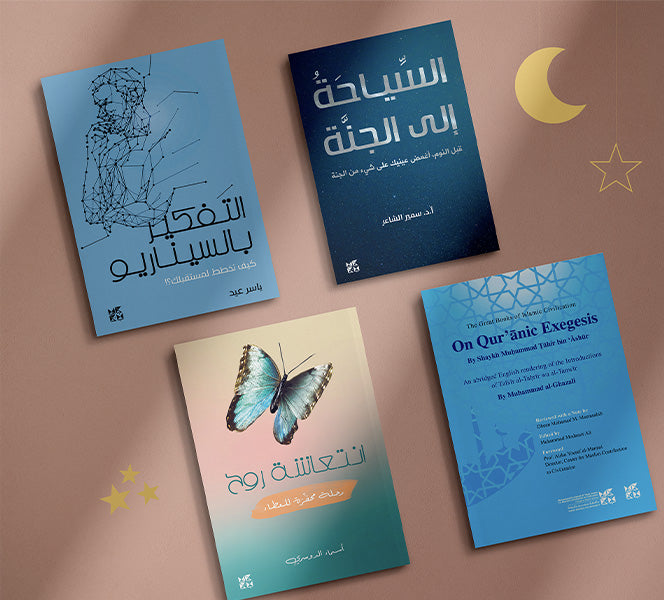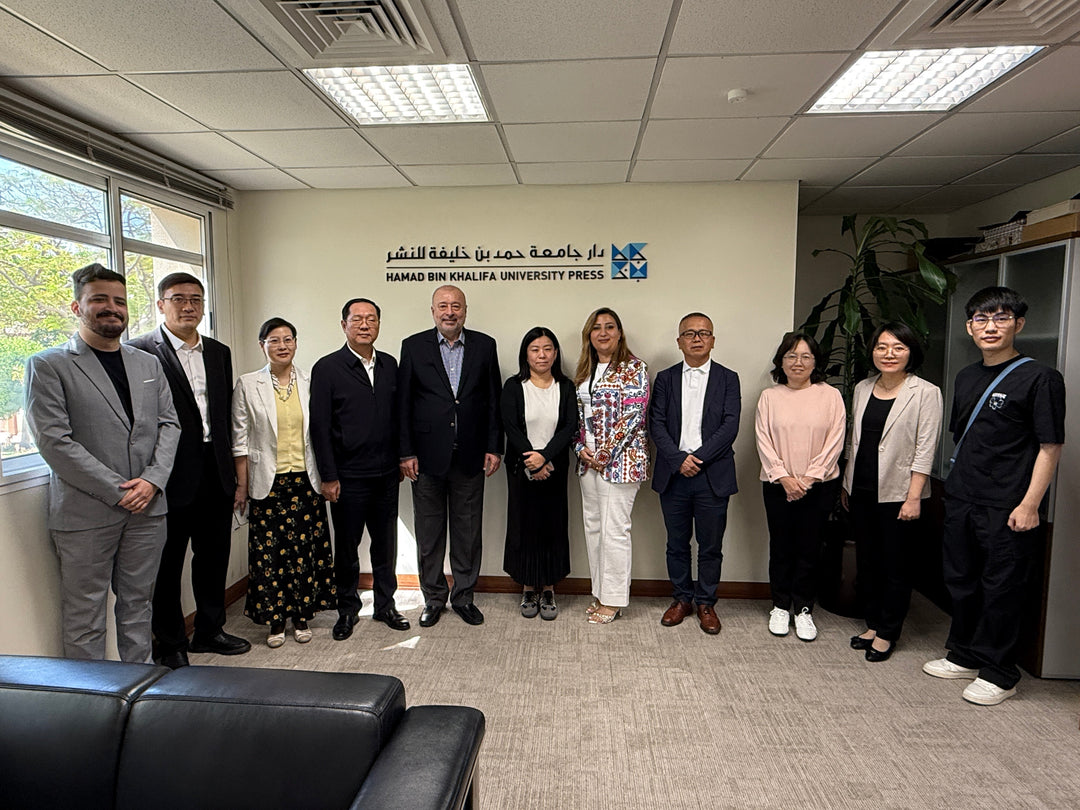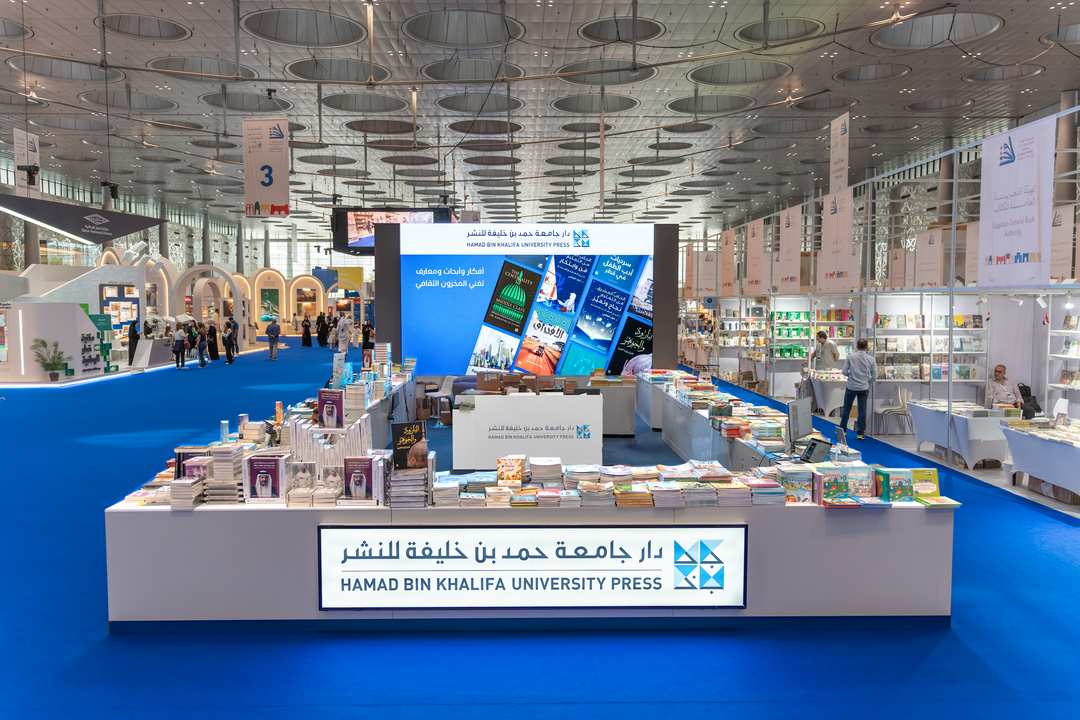HBKU Press Ramadan Book Recommendations Promote Mindful Practice

Hamad Bin Khalifa University Press (HBKU Press) is taking an active role in the personal and literary goals of casual and avid readers alike this Ramadan season. The prolific publishing house continues to produce books and titles which vary by reading level, interest, and genre. This Ramadan, HBKU Press has identified some book recommendations that delve into holistic wellness and spiritual learning topics such as intentional consumption, healthy lifestyle habits, and Islamic learning
“HBKU Press strives to maintain a diverse catalog as we continue to grow and expand,” says Bachar Chebaro, Executive Director of HBKU Press. “Our books range from entertaining to educational, but always succeed in contributing some sort of intellectual value to the life of the reader. For Ramadan, we took care to recommend books that nourish the mind and support in the overall purpose of the season, which is to reflect inwards and emerge more mindful of ourselves than when we began.”
The holy month of Ramadan invites all to engage in the seeking of beneficial knowledge, such as that which informs the roles that spirituality, faith, and religion-based scholarship may take. Muslim scholars have long since been contributing to various fields of life throughout the different times and places of human civilization. Prominent Muslim scholars such as Ibn Sina, Al-Ghazali, Ibn Rushd, Ibn Khaldun, and many others have produced original works that serve as staples in learning centers throughout the world. Interest in Islamic civilization and history continues to rise worldwide, and HBKU Press has since compiled a series which aims to present a collection of Islam’s most important intellectual contributions to non-Arabic readers. The first of the series, The Great Book of Islamic Civilization: On Quranic Exegesis, is an abridged version of the Introductions of Muhammad Tahir bin ‘Ashur becomes available to the English-speaking world for the first time in this translation of one of the most significant contributions to Islamic civilization. His Introduction, popularly known as Muqqadimat Ibn Ashur, is a bridge between the classical and the modern throughout the scholarly journey of Quranic exegesis.
The season of Ramadan is the ideal opportunity to practice mindfulness and measured planning through structured and intentional thought. Scenario Thinking: How Do You Plan for Your Future? by researcher Yasser Eid invites readers to adopt more flexible and adjustable strategies for the future. Through scenario planning, the reader is able to apply critical thinking practices to personal and professional life, as well as develop a versatile tool for decision-makers, stakeholders, leaders and managers, and researchers in the field of planning and foresight. Inspired by the unprecedented global events and aftershocks of the COVID-19 pandemic, this book is informed by the level of preparedness with which countries were able to manage the various emergencies that were consequently borne, and how they might face potential future crises. The author trains the reader through this book to develop strategic alternatives and future visions, helping the reader become more resourceful in thought and action.
Vacations to Paradise by Dr. Samir Al-Shaer similarly broaches the importance of thought regulation as it pertains to everyday life; his approach to managing internal discussions centers around the effects of stress and mental activity on insomnia and sleep quality. He draws on his experiences undergoing an impactful religious and philosophical journey which sees him recalling his development of a now perfectly crafted tool. Through this disciplined self-training, Dr. Al-Shaer was able to build a new methodological habit of recentering his own self and reducing mental activity before bed by invoking his faith and thinking only about the beauties of paradise. This is an achievable, easily implemented practice which helps the reader remain grounded and mindful of a wider perspective. This book aims to guide anyone with personal struggles to sleep better by taking their own nightly vacation to paradise.
Finally, A Refreshed Soul by Asma Al-Dosari examines charity as a transcendent phenomenon which views the gift of giving as a spiritual experience for both the giver and the receiver. In her book, she posits that giving is a way to strengthen one’s own spiritual values through the analysis of charitable work and its development in the Holy Quran and as practiced by the Prophet Muhammed (PBUH). The book also expands to include the constructed system of values that define the giving of both individuals and institutions alike. She highlights an industry of giving that then widely permeates, affecting behavior on the personal and societal levels, reflecting on how spiritual values have the power to improve people’s lives. This book is a timely addition to the reading list of anyone curious about the origins of charity as it pertains to the Islamic faith, as well as how charity and giving is a holistically encompassing phenomenon which possesses the power to impact the spiritual value system at every level and affect positive change for all.






